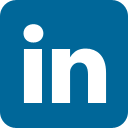News of Google ending sales of its flagship wearable, Google Glass is doing the rounds. Whilst that headline may grab attention, Google insists that the move is part of the product evolution. Here, David Levine, CEO of UK-based Computer Vision startup DigitalBridge.eu explains why the Google Glass naysayers should take stock and acknowledge the lessons behind the headline.
I am perturbed and puzzled in equal doses at the virtual glee a number of mainstream blogs and sites seem to be illustrating regarding Google’s announcement that Google Glass will be withdrawn from sale from January 19th.
Indeed CNET’s article comments that “… in withdrawing it from sale, isn’t the company admitting that people really didn’t want it?“. Indeed, way back in April 2014 ZDNet was already sounding the death knell by declaring “Google Glass is dead.”
I find this whole line of thinking puzzling in the extreme.
Google Glass was literally the beginning of a revolution not just in the wearables sector but mobile as a whole. The concept was big, bold and brash and captured the imagination of the entire industry; that same industry that seems to be celebrating its “downfall”.
One of the core fundamentals of the Lean Startup is the build-measure-learn feedback loop. You build a Minimal Viable Product. You let people use it and you measure the results of those interactions. You learn from those very same interactions. You then iterate and go and do it all again.
What Google did was put out the hardware equivalent of an MVP; a product that was good enough for people to actually use but was never intended to be the final product. Google did an experiment – they created a piece of hardware, used their gargantuan marketing channel and got real people to use it in all sorts of different ways and in different situations.
And they learnt a lot. They learnt that fashion matters – people don’t want to stick a computer on top of their eye if that’s what it looks like. My old friend and colleague Andrew Bolwell puts succintly when talking about HP’s recent collaboration with Michael Gilt on the Chronowing Smartwatch: “…equally important for the watch to be both smart and fashionable.”
They learnt that wearable technology has to be so unobtrusive that people don’t know technology is involved. They learnt that privacy really does matter to an awful lot of people. And they probably learnt that hardware isn’t their thing.
None of these learnings would have come out had Google run a few focus groups.
David Levine
CEO
Computer Vision


So what’s next? Well for one I think you’ll see a lot of lessons learnt from this iteration implemented in the next. The hardware may not come from Google – but whoever it comes from you can guarantee it will look a lot nicer; something that people may even be proud about wearing.
One thing is certain though – we’ve not heard the end of the Glass concept. And that’s a great thing.
(This article first appeared as one of David’s posts on LinkedIn Pulse and is published here with his permission)



